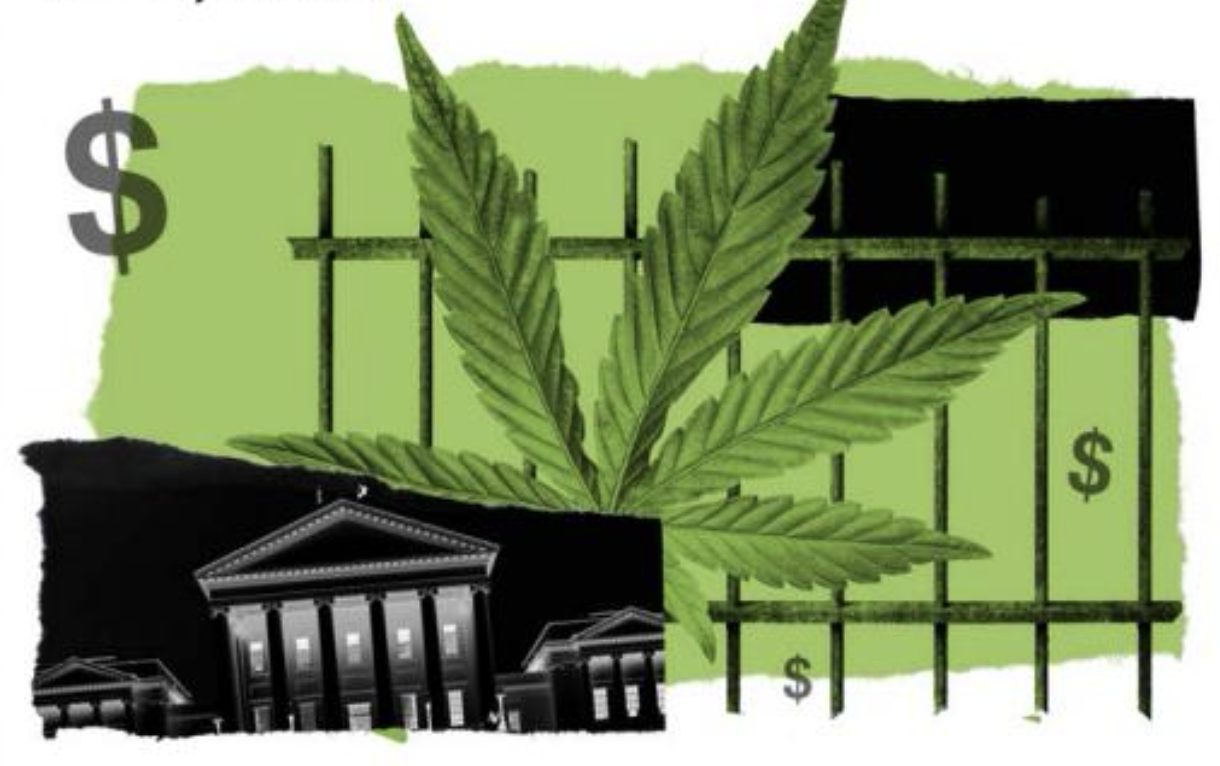What would you do with $300 million in drug money?
That’s the question now facing the Virginia General Assembly.
Both the Virginia House and Senate have passed bills promising to legalize marijuana for adult use by 2024. In the coming days, legislators from the two chambers will meet to reconcile the two bills before sending a final version to the governor, which he’s expected to sign.
Over the first five years of marijuana legalization, the commonwealth could bring in anywhere from $184-$308 million, according to a 2020 report from the assembly’s nonpartisan research commission. The state government won’t be the only entity profiting when weed is legal, either. With cultivation and retail industries poised to flourish, questions about who makes money from marijuana are at the front of legislators’ minds.
The state plans to levy a 21 percent tax on pot sales, in addition to the existing 6 percent sales tax. (For reference, liquor is taxed at 20 percent in Virginia, the third-highest rate in the nation.)
Both the state Senate and House bills propose the same spending plan for that new marijuana tax income: 40 percent will be devoted to pre-K education for at-risk youth, 30 percent to the Cannabis Equity Reinvestment Fund, 25 percent to substance abuse treatment and prevention, and 5 percent to public health initiatives.

That might sound reasonable enough, but some activists have concerns. Marijuana Justice’s Chelsea Higgs Wise wants to see 70 percent devoted to the equity fund, which would seek to make up for past discrimination by providing things like tutoring and mentoring programs and free transportation in cities like Richmond.
“Three- to 4-year-old pre-K is something that’s very dear to our heart, but we understand that those 3- to 4-year-olds would be better served if they are housed with rent relief funds, or if they’re fed with different feeding programs,” says Higgs Wise. She warns against “giving this reinvestment money back to institutions that have not invested it intentionally for our community.”
Under the current proposal, the Charlottesville and Albemarle local governments stand to make money from legalization, too—the bills give localities the option to add a 3 percent tax of their own on top of the state’s fees. Massachusetts adopted an identical local option system when it allowed retail sales to begin in late 2018. In the second full year of legalization, 46 Massachusetts localities combined to bring in $14 million from marijuana sales, according to Mass Live.
Matt Simon, senior policy analyst at the Marijuana Policy Project, says high tax rates won’t prevent people from buying legally.
“People may experience sticker shock when the stores first open, and say ‘I can get this cheaper from my guy I went to high school with,’” Simon says. “But both Colorado and Washington have higher taxes than are in this bill, and over time they’ve captured the vast majority of the market…The prices are much lower in the stores than from illicit sources.”
Legislators must also consider who runs those stores. Exactly how many licenses will be passed out remains to be seen—Simon says the current plan could be “in the realm of 400 retailers.” That’s a departure from Virginia’s two-year-old medical cannabis industry, in which only five large corporations have licenses.
The bills currently prioritize giving cultivation and retail licenses to those whose communities have been subjected to racist enforcement of marijuana laws in the past. The state can’t directly offer Black people a head start, but it can decide that businesses owned by those with marijuana convictions, or businesses that employ 10 or more people with past convictions, will be given a six-month head start in the license application process.
Higgs Wise says those provisions might not be enough, however. For example, she’s concerned that allowing 10 formerly arrested low-wage employees to qualify a business for equity priority won’t meet the intended goal of giving Black and brown people access to lucrative business management positions.
Ross Efaw owns the area’s Greener Things CBD Dispensary, which sells a variety of low-THC hemp-derived products. He also hopes that marijuana licenses are accessible to the little guy.
“Small, locally owned businesses like us want to participate in legal cannabis sales. We’re well positioned to. We have the experience. It’s just a matter of if the state will allow for accessible permits for small businesses,” Efaw says. “We hope there’s opportunity for everyone.”
Efaw says Charlottesville could quickly become a hub for marijuana sales in the state. “I think Charlottesville’s a great market and it’ll really catch on here. No doubt in my mind. Our clientele ask us all the time, ‘When are you going to have THC products available?’”
While lots of questions remain about the future of marijuana in Virginia, one thing is for sure, says Efaw: “The demand is high.”
